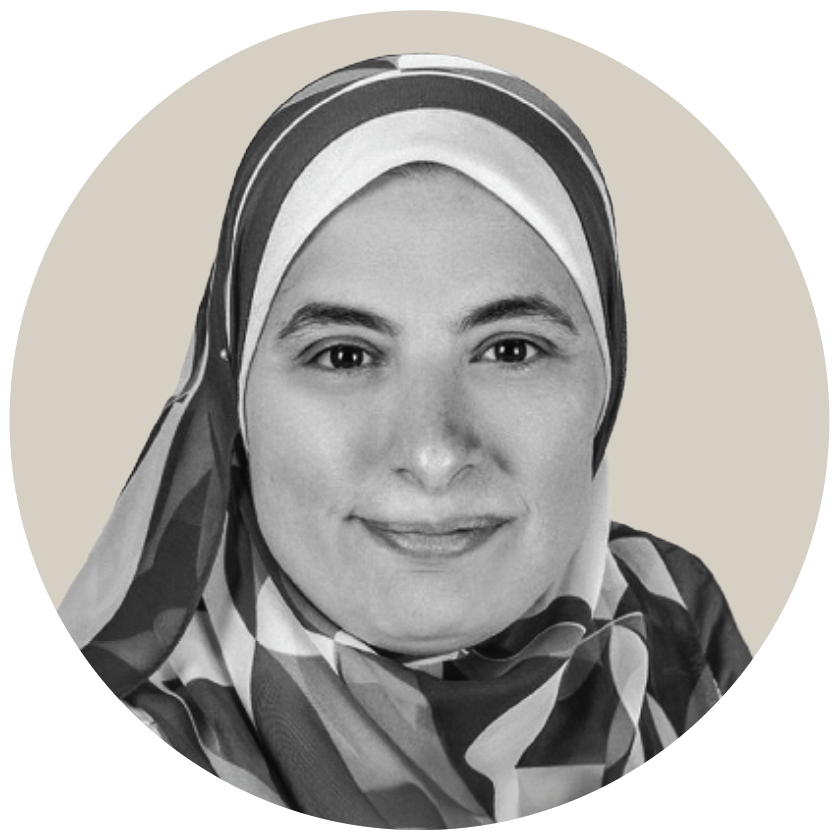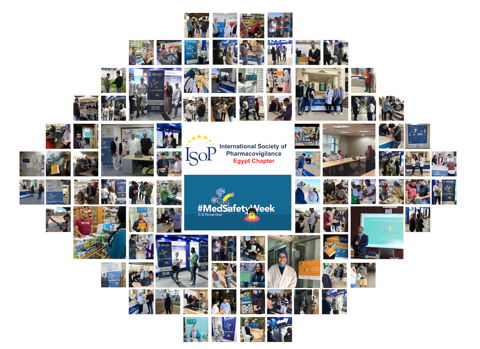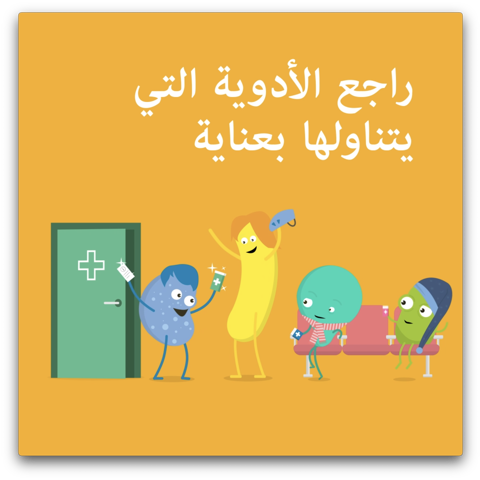
Hadir Rostom
President, ISoP Egypt Chapter

Photo: iStock
#MedSafetyWeek 2020 was the most successful ever. One of the broadest and most active agendas took shape in Egypt, setting a great example for future events.
The International Society of Pharmacovigilance (ISoP) Egypt Chapter commends the crucial role that healthcare professionals (HCPs) play in reporting and flagging patient safety issues, including reporting through the Egyptian pharmacovigilance centre. We saw the annual #MedSafetyWeek campaign as a perfect opportunity to enhance national pharmacovigilance practices. In particular, we appreciated the 2020 campaign’s focus on adverse drug reactions (ADR) as a way to increase awareness and engagement and improve understanding of how important this issue is.
To make the most of #MedSafetyWeek 2020, the ISoP Egypt Chapter decided to take the campaign beyond social media and include field activities, which helped us engage diverse stakeholders, both organisations – such as hospitals, academia, community pharmacies and pharmaceutical companies – and individuals – such as pharmacists, pharmacy students, and pharmacovigilance staff at pharmaceutical companies.
Likewise, we were keen to enable diverse stakeholder engagements to suit all audiences. To that end, we pursued contacts through one or more of the following:

To understand how familiar HCPs are with pharmacovigilance, we cooperated with Dar Al Fouad Hospital, Nozha International Hospital and Saudi German Hospital in Cairo to reach out to doctors, nursing stuff, pharmacists (both in-out patient and clinical), and patients.
“Sometimes, I notice some symptoms of sensitivity in a patient to a certain drug that did not occur with other patients taking the same drug,” said one of the nurses we received feedback from. “In these cases, I inform the doctor or the head of nursing staff, if there isn’t any doctor available.”
Before the scientific session we prepared for doctors in Dar Al Fouad Hospital as part of the #MedSafetyWeek activities, the discussion revolved around what would happen if a patient experienced side effects, whether known or unexpected?
The responses varied from one doctor to another, including: “discuss the side effects with my colleague” or “reduce the dose”, and one doctor said, “take the pharmacist’s opinion into consideration”.
We also called upon patients, consumers, and carers, as well as HCPs and their organisations, to report suspected ADRs. We advise people not to wait for someone else, but rather to report their suspicions directly as soon as they can. It is common for patients to approach community pharmacies when they feel unwell, seeking advice before going to the hospital, perhaps hoping they will be prescribed an over-the-counter drug. These types of interactions present an excellent opportunity to capture and report ADR information.
Community pharmacists are considered one of the pillars of the pharmacovigilance system because of their potential for spontaneous ADR reporting. Therefore, we have cooperated with El Ezaby Pharmacy, one of the largest pharmacy chains in Egypt. Thanks to the presence of a booth we hosted with El Ezaby, we were able to directly conduct patient awareness activities – and many patients reported ADRs on the spot. Furthermore, field visits for some individual pharmacies have been conducted.

“I think awareness about pharmacovigilance in Egypt will make a great change in how both patients and HCPs perceive medicines and their safety”
Students at the faculty of pharmacy at the October University for Modern Sciences and Arts (MSA University) were the most active and vital participants in our campaign, not to mention their great interaction with us on social media. At our booth on campus they conducted effective awareness activities for students and academic staff (both medical and non-medical). Furthermore, the campaign added academic value for the participating students by bridging their curriculum to pharmacovigilance practice.
“I think awareness about pharmacovigilance in Egypt will make a great change in how both patients and HCPs perceive medicines and their safety,” said Kirolus Medhat, one of the participating students.
“My participation in this awareness campaign has improved my communication skills with patients,” said Rawad Mazen, another participating student.
“What I really loved about my participation in this campaign – it gave me the opportunity to apply some aspects of what I have learned in my pharmacovigilance course,” said student Nancy Hesham.
We conducted these field activities parallel to the main social media campaign of #MedSafetyWeek, allowing us to post a harmonised mix of campaign messages and field activities coverage.
All in all, the campaign was successful and the ISoP Egypt Chapter received very positive feedback about its activities. This was especially pleasing, given that this was the first pharmacovigilance campaign to run in Egypt on such a large scale, combining social media and field activities and the involvement of different stakeholders.
Since 2020, the ICPV has worked to improve drug safety reporting at Instituto Nacional de Cardiología Ignacio Chávez, with promising outcomes.
16 October 2025
The annual #MedSafetyWeek campaign reminds us that medicines work best when they're safe. In Aligarh, healthcare workers came together to make that message a living reality.
19 November 2025
Two-thirds of pharmacists in Nigeria witness weekly cough syrup abuse, yet poor reporting systems and unclear guidelines prevent effective intervention, leaving its youth at risk.
03 December 2025